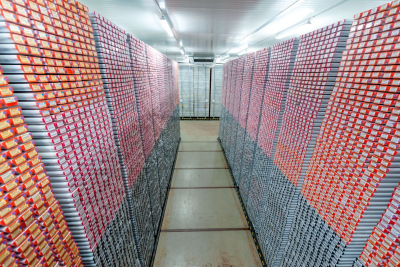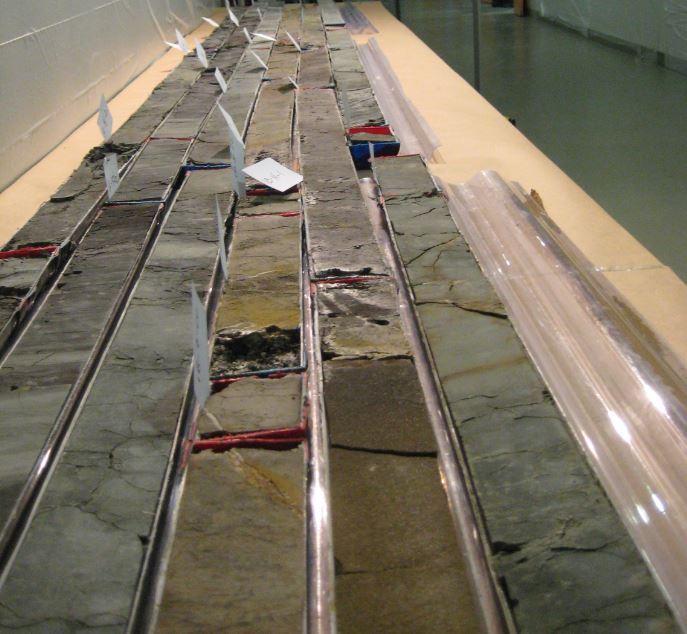- CBEP12
- Abstracts
Abstracts
Call for Abstracts - closed -
The invitation for abstract submission to the 12ᵗʰ conference on Climatic and Biotic Events of the Paleogene opened on 21 March 2022.
The conference will highlight new perspectives and results on Paleogene Earth system research through poster presentations and plenary oral sessions. The format will feature ample formal and informal time for poster viewing and discussions, and we anticipate that up to 2/3 of all presentations will be given in poster format. Oral sessions will be organized around a series of themes that the scientific committee has selected to promote presentation and discussion of work at the cutting edge of Paleogene Earth science research (see below).
Abstracts and extended abstracts should be submitted here, but no later than 10 June 2022. Notification of acceptance and a call for registration will follow shortly after that date.
Call for Workshops
If you want to get together with current or new collaborators for workshops during CBEP12, we offer space and time. Please email [Bitte aktivieren Sie Javascript]
The afternoon of Wed, 24 Aug 2022, would provide opportunities to gather in smaller groups for discussing ongoing matters or planning future initiatives.
Located at MARUM – Center for Marine Environmental Sciences of the University of Bremen, the IODP Bremen Core Repository (BCR) holds sediment cores from over 90 expeditions.
The Bremen Core Repository is also the home of the Bighorn Basin Coring Project (BBCP) cores. Explore beyond the Paleogene at CBEP12 and consider a workshop!
Please tell us as soon as possible (but no later than 17 June 2022) - email to [Bitte aktivieren Sie Javascript] - if you plan to organize a small workshop and for how many participants you anticipate to design it!


Scientific Sessions
| Theme 1: Habitable Planet: Learning from Past Environments |
| (Pincelli Hull, Steve Bohaty) |
| Session 1.1: Planetary States and State Changes |
| Session 1.2: Resilience and Adaptation (and sometimes not) |
| Theme 2: Trends and rhythms in Climate, Paleoecology and Paleodiversity |
| (Claudia Agnini, Laia Alegret, Matt Huber) |
| Session 2.1: Lessons from the "boring background": How orbital-scale and long-term changes in climate and environment affect past ecosystems? |
| Session 2.2: Abrupt climate upheavals: Patterns, magnitudes and rates in the response of the biosphere |
| Theme 3: Biogeochemical Cycles |
| (Eleni Anagnostouu, Michael Henehan) |
| Session 3.1: CaCO3 Production, Dissolution and Accumulation over the Paleogene |
| Session 3.2: Reconstruction of atmospheric greenhouse gas concentrations from the late Cretaceous through the Oligocene |
| Theme 4: Tectonics, Surface Environments and Hydrological Processes |
| (Edoardo Dallanave, Pete Lippert) |
| Session 4.1: Source-to-sink sedimentation during warm intervals of the Paleogene |
| Session 4.2: Impact of paleogeography on our understanding of Paleogene climate records |
| Theme 5: New ways forward to access climate processes – advances in proxy development |
| (Ellen Thomas, James C. Zachos) |
| Session 5.1: Paleoproxies: New Developments and Applications |
| Session 5.2: Proxies for Earth Surface Temperatures and pCO2 |
| OPEN Themes |
| (Henk Brinkhuis, Appy Sluijs) |
| Session 6.1: Think outside the box |
Submission Instructions
Submission (Open)
- Please submit your abstracts via internet. Abstracts submitted via e-mail, post, or other methods will generally not be accepted.
- The conference language is English.
- Abstract submission in English.
- Abstract changes and corrections will be accepted until the deadline.
- Ensure the citable publication of the abstracts.
- For presenting authors of accepted abstracts, registration and participation in this conference is binding.
Notifications (Emails)
- Please note that only the submitting (corresponding) author receives all abstract notifications.
Make sure that emails from [Bitte aktivieren Sie Javascript] are not marked as spam by your email provider. - The submitting (corresponding) author takes responsibility for informing all co-authors about successful submission, acceptance or rejection and forwards the received instructions for the presentation of the abstract to the presenting author.
Abstract contents and format
- Do not use the title or the name(s) of the author(s) in the body of the abstract.
- Please formulate clearly and concisely the questions, the methods used, the results and the conclusion of each abstract.
- Abstract titles should be concise and direct.
- Maximum length of 2500 characters (including spaces).
- Abstracts may include up to 5 references. Each reference inserted into the abstract
counts for 30 characters. - Please use a minimum of formatting for abstracts. We cannot guarantee that abstracts will be formatted in the exact way as they are entered.
- Avoid using non-standard abbreviations.
Help
- If you have any questions about registration or submission, please use our Knowledge Base, which you can open via the menu item Help.
- Help is available content-related on each view. Click the question mark next to the corresponding areas “?”.
- To send a message, please use the Feedback/Support form, available in the main navigation. We will get back to you shortly.
For further information concerning registration please visit the marum.de/CBEP12.
Thank you. We wish you success in submitting your abstracts!


